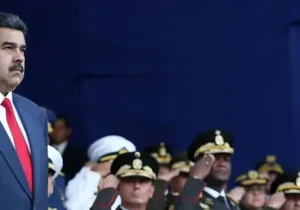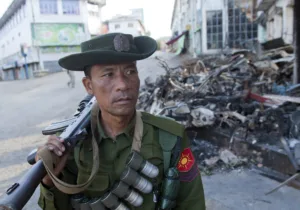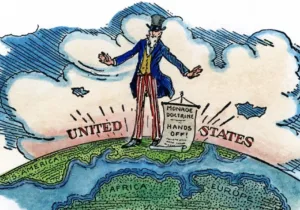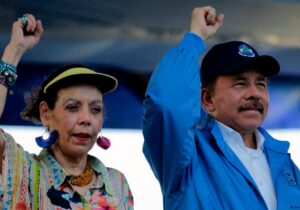When Nicolás Maduro took power in Venezuela in 2013, the country was already in a downward spiral. Not only were civil liberties declining, but the country was on the verge of an economic crisis. It has not gotten better.
Now, South and Central Americans face close to 1.6 million Venezuelans fleeing their own country because of hyperinflation and the complete lack of resources and liberties.
The US has been a constant criticizer of Maduro’s government and recently banded with other South American countries to release more sanctions: this time on three top officials and Venezuela’s first lady.
Maduro has become more and more authoritarian over the years, with Hugo Chavez beginning the democratic erosion. The judicial branch is no longer independent but is filled with Maduro’s supporters while also assuming almost full legislative power.
Noticeably, Maduro has criticized the press, civil society groups, and non-governmental organizations, citing that they are instruments of the US to take down Maduro’s government.
Bolivian President Evo Morales has been following suit. According to Human Rights Watch, Morales has decreed that government officials have the ability to revoke the permit of civil society groups and NGOs under the same precedent Maduro has used: conspiracy against the government.
Having recently extended term limits (even after a referendum where the majority of the population voted not to extend term limits), Morales hopes to win another term in 2019.
The only difference between these two slips into authoritarianism seems to be that Bolivia’s economy appears to be doing better. In fact, only 17 percent of Bolivians are plagued by extreme poverty, compared to 10 years ago when it was 30 percent.
This is not to say that Bolivia’s socialism has made the country better. Morales has used “for the people rhetoric” to consistently remove laws protecting minorities and opposition and create laws that expand his power.
He has recently sought to submit a “law against liars” in the press and to “moralize” independent news organizations. Many NGOs, including missionaries and their businesses, have been targeted by Morales’ government.
The stark similarities between both Venezuela and Bolivia’s current trajectories have been noted. However, Venezuela is the only country that has faced international pressure in the form of rhetoric and sanctions. Nothing is happening to encourage Morales to stop. If no one acts, then the situation may become another crisis like the one in Venezuela.
The US must work with South American countries to push Bolivia into more democratic ways. Morales’ oppression of Bolivian people mixed with a complacent economy will only cause damage to democracy’s name and to Bolivians.
—
Kennedy Weber is an intern for Providence in New York City.
Photo Credit: Bolivian President Evo Morales Ayma briefs correspondents at a press conference in UN Headquarters on September 26, 2015. UN Photo by Mark Garten.






 Sponsor a student for Christianity & National Security 2024
Sponsor a student for Christianity & National Security 2024